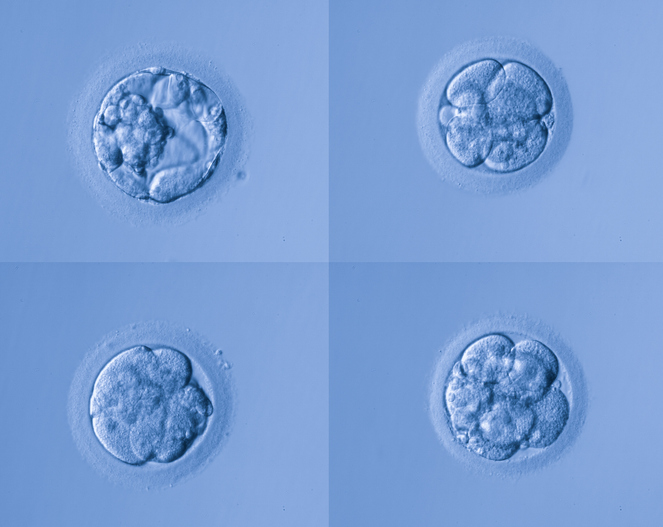.png)
.png)
Egg donation is a medical procedure where a woman donates her eggs to individuals or couples who are unable to have children using their own eggs. The egg donor undergoes a series of medical and psychological screenings and hormonal treatments to stimulate egg production. Once the eggs are mature, they are retrieved through a short surgical procedure done on an out-patient basis. The eggs are then fertilized with sperm (either from the intended father or sperm donor) and the resulting embryos are either transferred to the recipient's uterus (intended mother or gestational carrier) or frozen for later use.
Many times donors have seen first hand their own friends or family struggling with infertility. Witnessing this creates a desire to help and motivates them to donate their eggs. This act of giving can be deeply fulfilling on a personal level knowing that they are creating family trees or relationships (parents, grandparents, aunts, uncles, etc.) that might otherwise have never existed.
Anonymity is often a primary question for potential donors as they may believe that anonymity to be a way to protect themselves from the emotional complexity that is egg donation. They may believe that by remaining anonymous they can avoid forming any type of relationship with the child or recipients thereby also potentially avoiding feelings of guilt, responsibility, or attachment. Or they may not want it to interfere with future relationships or their own family dynamics. While anonymity is no longer realistic, disclosed and undisclosed egg donation offers benefits and the chance for meaningful future connections.
Donor anonymity
The traditional concept of anonymous donation prioritizes privacy and confidentiality for donors, the intended parents, and any resulting children. In traditional anonymous donation, there is no exchange of identifying information between the egg donor and the intended parents. If there is contact, it is very limited and is facilitated by the fertility clinic or agency.
But in recent years, DNA testing services, like 23andMe, have had a profound impact on egg donor anonymity. The ability to uncover genetic connections through these tests undermines the anonymity promised in traditional egg donation arrangements. Even if donors and recipients agreed to anonymity, individuals who were conceived using donor eggs may take one of these tests and uncover genetic connections to relatives, including their egg donor.
In the past, when anonymity was promised in egg donation arrangements, it was often based on the understanding that the identities of both the donor and the recipient would remain confidential and undisclosed to each other. However, as mentioned above, with the increasing popularity of direct-to-consumer genetic testing services, maintaining complete anonymity in egg donation is basically impossible. If an egg donation agency or egg bank promises anonymity, be very weary. They are not able to guarantee it due to DNA testing.
There is an increasing trend towards greater openness in egg donation arrangements in many countries, with increasing recognition of the importance of providing donors and offspring with the option for contact. For example, the United Kingdom has a regulated system for egg donation overseen by the Human Fertilisation and Embryology Authority (HFEA). Donors are required to provide non-identifying information that may be shared with offspring at the age of 18.
Disclosed and undisclosed donation
At Cofertility, we offer donors and the families they match with two general types of relationships.
In a disclosed relationship, the egg donor and recipient exchange contact information and can communicate directly. So, both the donor and the recipients are aware of each other's identities. The scope and degree of communication (both during and post-match) is what both parties make of it. This can range from occasional updates to ongoing relationships and involvement in each other's lives.
In an undisclosed relationship, identifying information is not exchanged and communication is facilitated through Cofertility. With an undisclosed donation, the donor and the family can choose to allow the donor-conceived child to receive the donor’s contact information when they turn a certain age (usually 18). This is called Open ID, an increasingly popular option.
Benefits of non-anonymous donation
Non-anonymous donation offers a more personalized approach. It provides donors and intended parents the opportunity to establish meaningful relationships and make informed choices based on mutual understanding and respect. This openness can offer opportunities for building positive relationships and can enable donors and intended parents to provide emotional support to one another throughout the donation process. This support network can be valuable in navigating the emotional complexities and challenges associated with egg donation.
Considerations for potential egg donors
The level of desired openness in egg donation is a personal choice and can vary significantly from individual to individual. Some individuals may prioritize transparency and openness in all aspects of their lives, including reproductive choices, while others may prefer privacy and discretion. Some may feel comfortable with potential future contact whereas others do not. Both are completely acceptable.
Summing it up
The concept of egg donor anonymity has evolved over time, with increasing recognition about the benefits of disclosure in egg donation. Initially, anonymity was commonly practiced to protect the privacy of all involved. However, as attitudes towards third party reproduction in general have shifted and advancements in technology have made maintaining anonymity difficult, there has been a growing trend towards disclosure and openness in egg donation. Every donor needs to prioritize their own comfort and values while understanding the positive possibilities of connection. It's essential for individuals considering egg donation to be aware of the potential risks and limitations regarding anonymity and to carefully consider the implications before proceeding with the donation process.
Read more:





.png)




